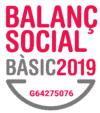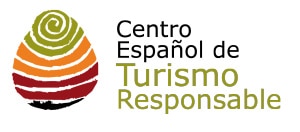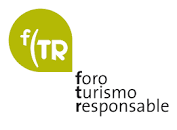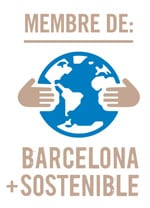AETHNIC
SUSTAINABLE TOURISM
Our proposal
When we travel we leave a mark .
It can be a positive mark and benefit local populations or, on the contrary, leave a negative mark and damage natural spaces, traditional ways of life and living conditions of local people.”
Since 2006, we have been committed to changing the conventional tourism model and work to transform the negative impacts of the activity into positive externalities for the destination and its people. From the organization we promote Responsible and Sustainable Tourism (TRS) , a respectful way of understanding tourism that promotes sustainable development and global justice.
In Catalonia, we promote the Responsible and Sustainable Tourism Network (TRS), a space for relationship, meeting, debate and promotion of the TRS open to the public administration, entities, tourism companies, academics and tourism scholars.
“Together we can transform tourism to improve our ecosystem and our quality of life. To achieve this, we need to change the current model towards the SDGs of the UN 2030 Agenda, and promote and implement the principles of Responsible Tourism and Sustainable”.
These are two of the most important commitments that have guided our actions within the entity
Responsible and Sustainable Tourism (TRS)
Since its birth, Aethnic has been committed to making tourism a socio-economic activity capable of generating profits on a small and large scale . From the entity we are aware of the multiple positive impacts that derive from tourism and that is why we work to enhance, extend and maintain them.
According to the World Tourism Organization (WTO), sustainable tourism is that which fully takes into account current and future economic, social and environmental impacts to meet the needs of visitors, industry, the environment and host communities (UNWTO, 2005). At the same time, the fundamental objective of sustainable tourism is to maintain itself over time without ceasing to obtain maximum economic profitability, to protect the natural resources that sustain it, and to respect and involve the local population (Pérez de las Heras, 2004).
for his dynamism and transversality, for his strong impact on the environment and global ecosystems, as well as for the undoubted relationship it establishes between visitors, industry, the environment and host communities, tourism is at the center of the sustainability debate, both for the negative externalities it generates and for the contribution it can make.
For all this, the Aethnic team works to promote a tourism model that is responsible and sustainable and that, above all, becomes a catalyst for well-being, prosperity, wealth, prosperity, equity, growth and justice.

The concept of "sustainability"
Far from being recent, the concept of “sustainability” has had a long history for years.
During the seventies of the 20th century, several scholars made clear the excessive pressure that consumerism and economic growth exerted on the planet and many of them echoed the consequences that could derive from it. Some even pointed to the imbalance between human development and ecological limits and predicted “possible consequences of disastrous magnitude”.
In 1968 numerous economists and humanists got together to debate the limits of economic growth and published, in 1972, the book The limits of growth which questioned and warned about the unviability of a socio-economic model based on the paradigm of “growth without limits” and forcefully demanded a sustainable and balanced global system.
However, it was not until 1987 that the notion of “sustainability” was formalized with the Brundtland Report. This defined “sustainable development” as “that which satisfies the needs of the present without compromising the ability of future generations to satisfy their own needs” .
Since then, sustainability has been applied in numerous sectors; and in the case of tourism, the TRS has been defined and articulated in several international conventions and declarations, such as the Cape Town Declaration , the Marrakesh Declaration and the Barcelona Declaration .

Declaration of Barcelona
“We recognize that sustainability is no longer an option but an irrevocable bet and that, through the development of the TRS, cities can be engines of social and economic progress, with great potential to contribute to the improvement of the quality of life of citizens, and to the safeguarding of the diversity of cultural expressions and environmental resources, including the tangible and intangible heritage that they host”.
” Through tourism, our cities must generate spaces of understanding and build a sustainable offer, where visitors and citizens can integrate and live together in harmony, minimizing the negative impacts that tourism can have in these areas and strengthening positive links with local economies”.
Consult the Barcelona Declaration to find out more.
What does the TRS provide? (some examples)
- Promotes heritage conservation.
- Respect and preserve socio-cultural authenticity.
- It promotes and strengthens local economic development.
- Promotes responsible consumption.
- Minimizes environmental impacts.
- Minimizes environmental impacts.
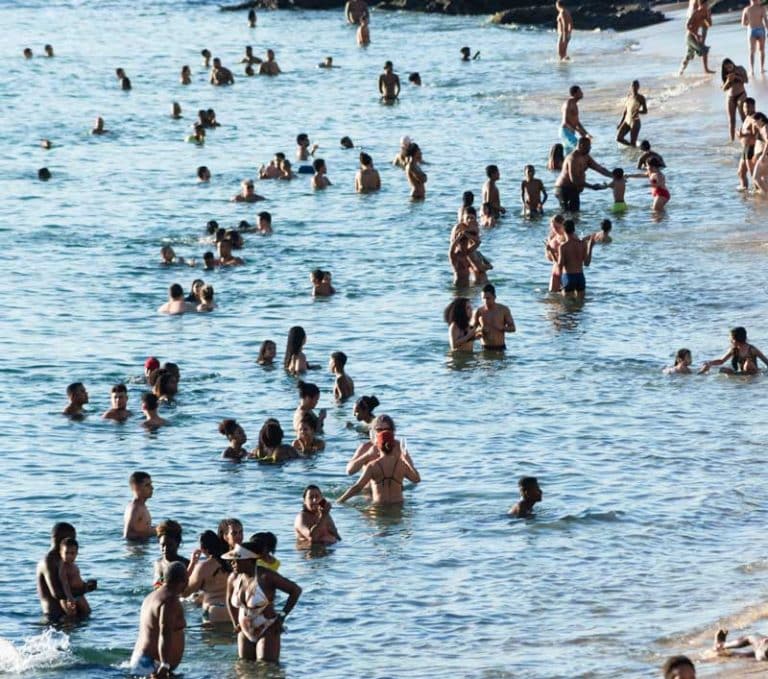
What happens when tourism is not sustainable?
When tourism is not planned, developed and managed in a sustainable way, it can generate very damaging negative externalities, both in the short and long term.
Generally, sustainable tourism is established on three main axes: the economic, the social and the environmental , and therefore, its negative impacts can affect any of these areas. However, considering that tourism is a transversal and transdisciplinary sector, the externalities derived from this activity can affect the destination in an integral way.
Some impacts of "Unsustainable" tourism
- Loss of one's identity.
- Disappearance of small local businesses.
- Price rise of basic products.
- Increase in housing prices.
- Increased pollution.
- Exploitation of resources.
- Massification of spaces and gentrification.
- Unequal distribution of economic benefits.
- Emergence of attitudes of tourismophobia and xenophobia.
- Loss of biodiversity.
- Acceleration of climate change.
- Privatization and trivialization of public spaces.
What are the Sustainable Development Goals (SDGs)
The United Nations Conference on Sustainable Development (Rio de Janeiro, 2012) resulted in the agreement of all Member States of the United Nations to develop a road map to address the planet’s urgent challenges. Later, in 2015, the 193 Member States of the UN signed the 2030 Agenda and committed to take measures to face the social, economic and environmental challenges of globalization, while putting people, the planet, at the center , prosperity and peace.
Today, the 2030 Agenda is constituted as a comprehensive, multidimensional and universally applicable roadmap that marks global action for development until the year 2030. At the epicenter of the Agenda are 17 Sustainable Development Goals (SDGs) “through which it is proposed to address major global challenges, from the fight against poverty or climate change to education, health, gender equality, peace or sustainable cities”. However, all the SDGs add up to a total of 169 specific goals that contribute to the achievement of the general objectives.
The SDGs and tourism
The 2030 Agenda mentions the sector on 3 very specific occasions: in Objective 8 , on decent work and economic growth; to Objective 12 , on responsible production and consumption; and Objective 14 , on underwater life. Despite everything, the scope and transversality of the tourism sector means that it has a contribution , both direct and indirect, in the fulfillment of any of the 17 objectives.
For example, tourism can make an important contribution to: poverty reduction (Goal 1), gender equality (Goal 5), affordable and non-polluting energy (Goal 7), sustainable cities and communities (Goal 11), climate action (Goal 13) and the life of terrestrial ecosystems (Goal 15).
The World Tourism Organization (UNWTO) leads the monitoring work and promotes the development of the objectives related to the transformation of tourism.
“The UNWTO is responsible for the promotion of responsible, sustainable and accessible tourism for everyone, aiming at the fulfillment of the 2030 Agenda for Sustainable Development and the Sustainable Development Goals (SDGs), the scope of the which is universal”.
Currently, the UNWTO is integrated by 156 countries among which it promotes the application of the World Code of Ethics in order to maximize the socio-economic contribution of tourism and, at the same time, minimize its negative impacts.
National Plan for the implementation of the 2030 Agenda
On September 25, 2019, the Government of Catalonia approved the National Plan for the implementation of the 2030 Agenda in Catalonia.
Most of the commitments have an internal dimension and are aimed at Catalonia.
There are also commitments on a global scale, which reaffirm Catalonia’s commitment to the international community.
It includes 696 unique commitments which at the same time become 920 as some of them are included in several SDGs or in more than one milestone of the same objectives.
The 2030 Agenda in Barcelona
- Location: Determine what specific objectives and goals the 2030 Agenda for Barcelona entails.
- Evaluation: Use data to find out the situation and the evolution of the city with respect to the established goals.
- Innovation: Launching new policy approaches that are necessary to achieve the goals.
- Alliances: Working together with public administrations, companies, social organizations and citizens.
- Awareness: Spread knowledge of the agenda and stimulate public debate.
- Leadership: Promote the 2030 Agenda on the national and international stage, together with other cities.



